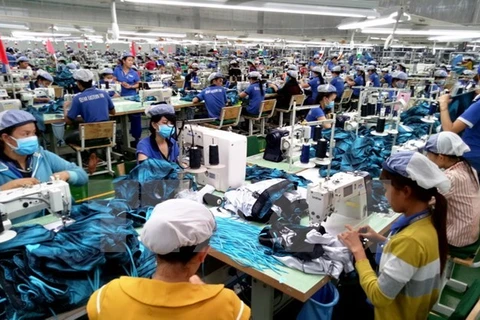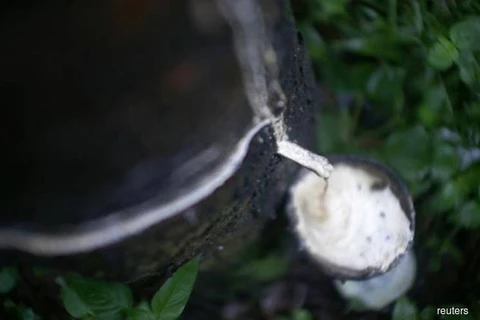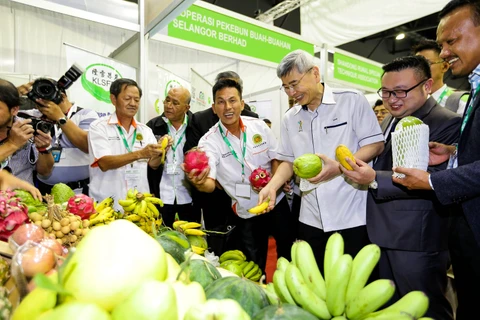Hanoi (VNA) - The durian is expected to become Malaysia's next major export as the country rushes to develop thousands of acres to cash in on unprecedented demand for the fruit from China.
Once planted in family orchards and small-scale farms, the durian is attracting investments like never before. Even property tycoons and companies in palm oil, Malaysia's biggest agricultural export, are making forays into the durian business.
The durian industry is transforming from local to global, large-scale farming due to the great demand from China, said Lim Chin Khee, a durian industry consultant, adding that the Malaysian government is encouraging large-scale farming of durian.
The durian may be banned in some airports, public transport and hotels in Southeast Asia for its pungent smell, but the Chinese are huge fans. Durian-flavoured foods sold in China include pizza, butter, salad dressing and milk.
China's durian imports rose 15 percent last year to nearly 350,000 tonnes worth 510 million USD, according to the United Nations' trade database. Nearly 40 percent was from Thailand, the world's top producer and exporter.
Malaysia accounted for less than 1 percent, but the nation expected its sales to China to jump to 22,061 tonnes by 2030 from this year's likely 14,600 tonnes.-VNA
Once planted in family orchards and small-scale farms, the durian is attracting investments like never before. Even property tycoons and companies in palm oil, Malaysia's biggest agricultural export, are making forays into the durian business.
The durian industry is transforming from local to global, large-scale farming due to the great demand from China, said Lim Chin Khee, a durian industry consultant, adding that the Malaysian government is encouraging large-scale farming of durian.
The durian may be banned in some airports, public transport and hotels in Southeast Asia for its pungent smell, but the Chinese are huge fans. Durian-flavoured foods sold in China include pizza, butter, salad dressing and milk.
China's durian imports rose 15 percent last year to nearly 350,000 tonnes worth 510 million USD, according to the United Nations' trade database. Nearly 40 percent was from Thailand, the world's top producer and exporter.
Malaysia accounted for less than 1 percent, but the nation expected its sales to China to jump to 22,061 tonnes by 2030 from this year's likely 14,600 tonnes.-VNA
VNA
























